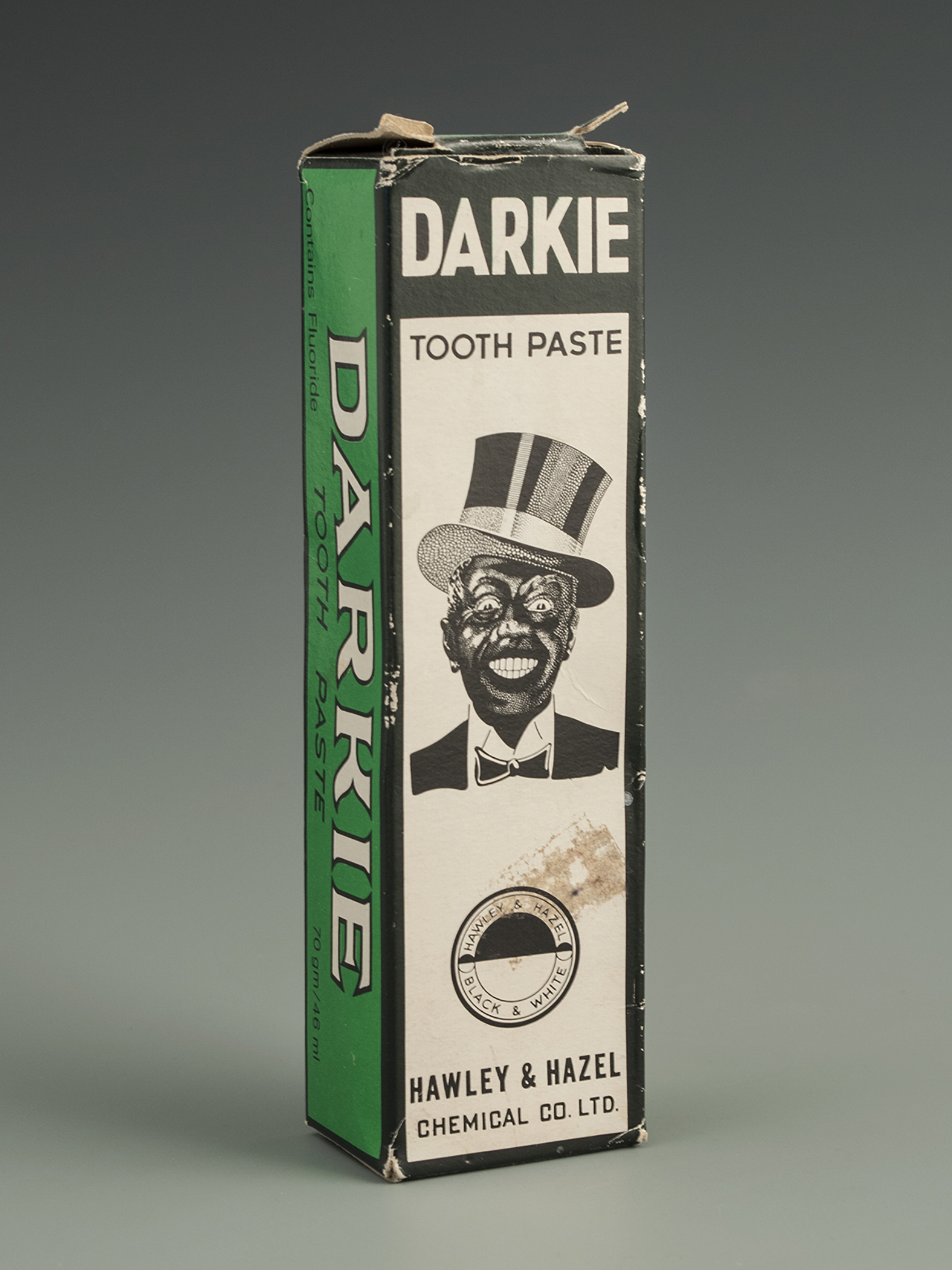Darkie Toothpaste
Thailand, 1979

I know. I couldn’t believe it, either.
But Thais, at least in 1979, were not always 100-percent aware of what various English words and phrases meant. One afternoon, I saw a prepubescent girl walking sweetly down the street, holding her mother’s hand. The girl’s T-shirt showed two halves of a grapefruit, one over each breast. The message below said, “Squeeze My Juicy Grapefruits!” As for myself, I was peeved and baffled as every single school-age Thai boy on the street ran up to me and demanded to know, “Where are you going!?” It took me many years to figure out that they’d simply fumbled an idiom. What they actually meant was, “How is it going?”
Darkie toothpaste, made in China by a company called Hawley and Hazel, was introduced in 1933. The image was a parody of Al Jolson. When Colgate-Palmolive acquired the brand in 1985, they changed its name to “Darlie” (really?) and promised the product’s sales would be confined to Asia. The image was also changed, and now displays a top-hatted dandy of ambiguous racial pedigree.
Fifteen years later, I saw something that gave me an equivalent shock. This was in a general store in Riyadh. The shop sold toasters and irons and blenders and, as is often the case, the packaging displayed images of smiling women using the appliances. Such immodesty is not kosher in Saudi Arabia, and some pious worker had been tasked with taking a black marker and blotting out the legs, bare arms, and faces of the comely models—leaving only their eyes.
It was a decidedly blackface look. In this case, though, no racial slur was intended. The motive was institutionalized misogyny.
